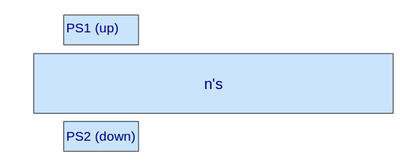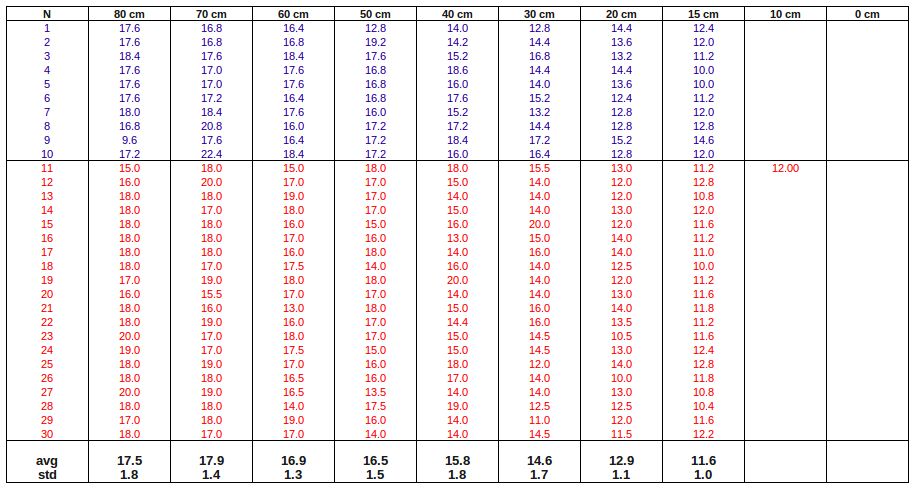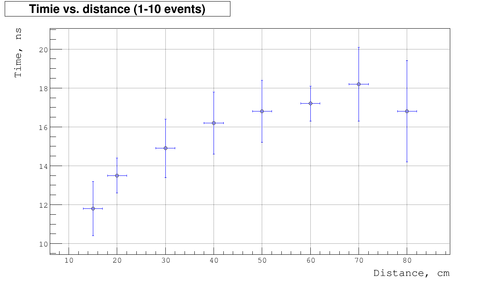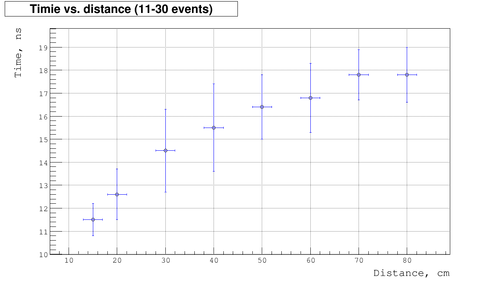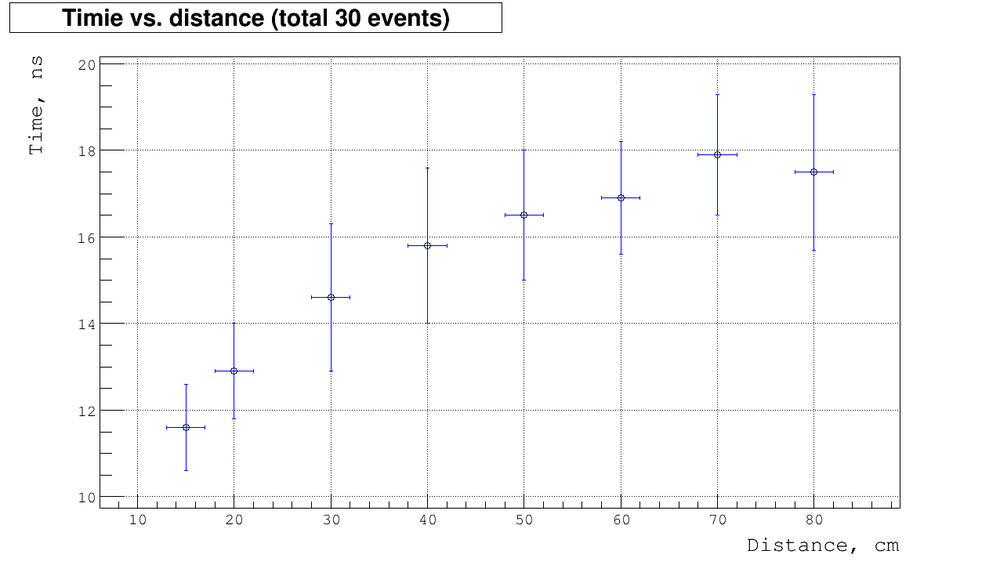Difference between revisions of "05/13/2011 timing test"
Jump to navigation
Jump to search
| Line 44: | Line 44: | ||
:▫ plot for last 20 events (measurements on May 16, 2001) | :▫ plot for last 20 events (measurements on May 16, 2001) | ||
:▫ combined plot for total 30 events | :▫ combined plot for total 30 events | ||
| − | |||
| − | |||
| − | |||
| − | |||
| − | |||
| − | |||
| − | |||
Revision as of 05:38, 19 May 2011
Set up like that:
The voltages, thresholds and widths are:
| PMT voltage, V | threshold, mV | discr. width, ns | |
|---|---|---|---|
| PS1 | -1000 | -80 | 50 |
| PS1 | -1000 | -80 | 50 |
| n's | -1500 | -200 | 10 |
Let's do the timing test. The distances are between PS1+PS2 and n's PMT. The time is time difference between PS1(PS2) and n's detector signals
As the distance becomes 10 cm and less the coincidence rate becomes very low. I have:
- ▫ 10 cm: PS1+PS2+n 11 coinc/98 min, coinc/min
- ▫ 5 cm: PS1+PS2+n 103 coinc/890 min, coins/min
- ▫ 5 cm: PS1 118182 coinc/890 min, coins/min
- ▫ 5 cm: PS2 138573 coinc/890 min, coins/min
Below is the plot of measured time as function of distances:
- ▫ plot for first 10 events (measurements on May 13, 2001)
- ▫ plot for last 20 events (measurements on May 16, 2001)
- ▫ combined plot for total 30 events
